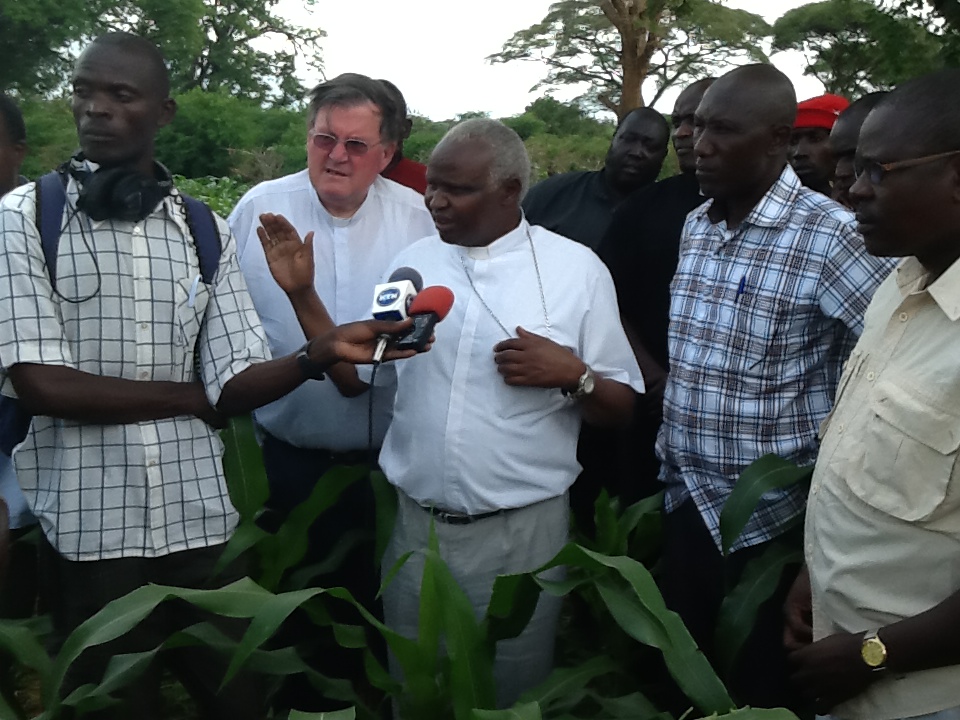Remembering a Peace Icon
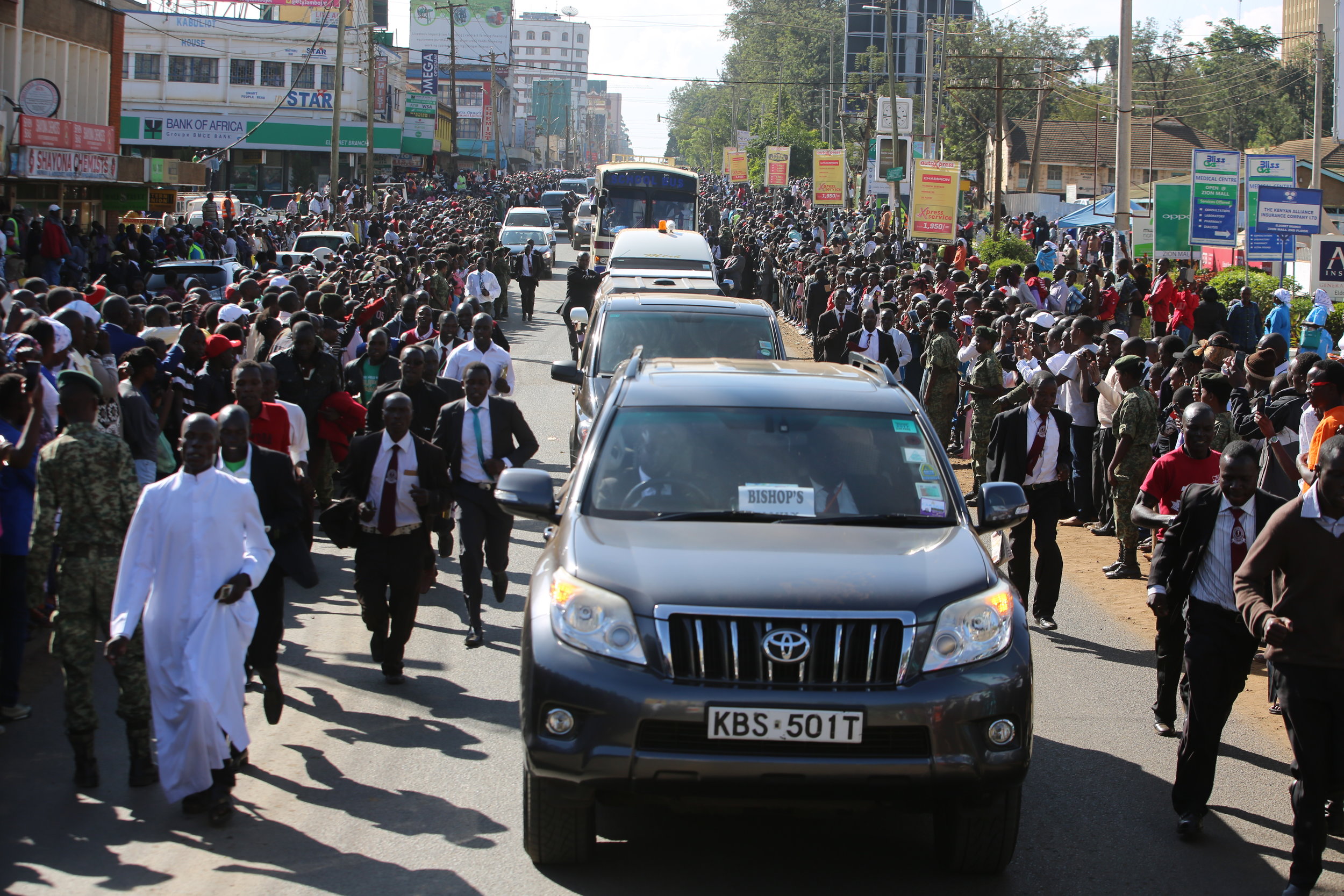
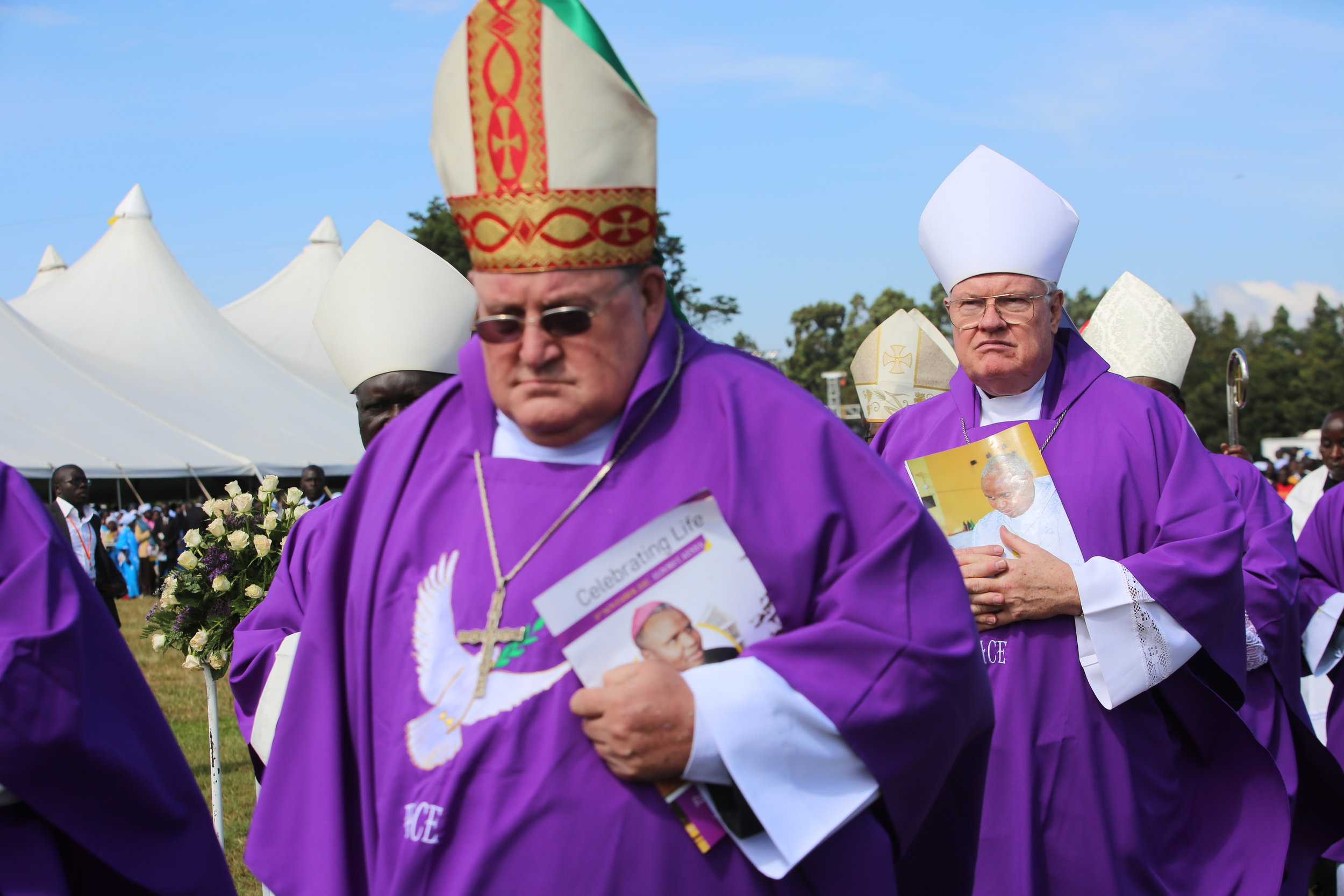
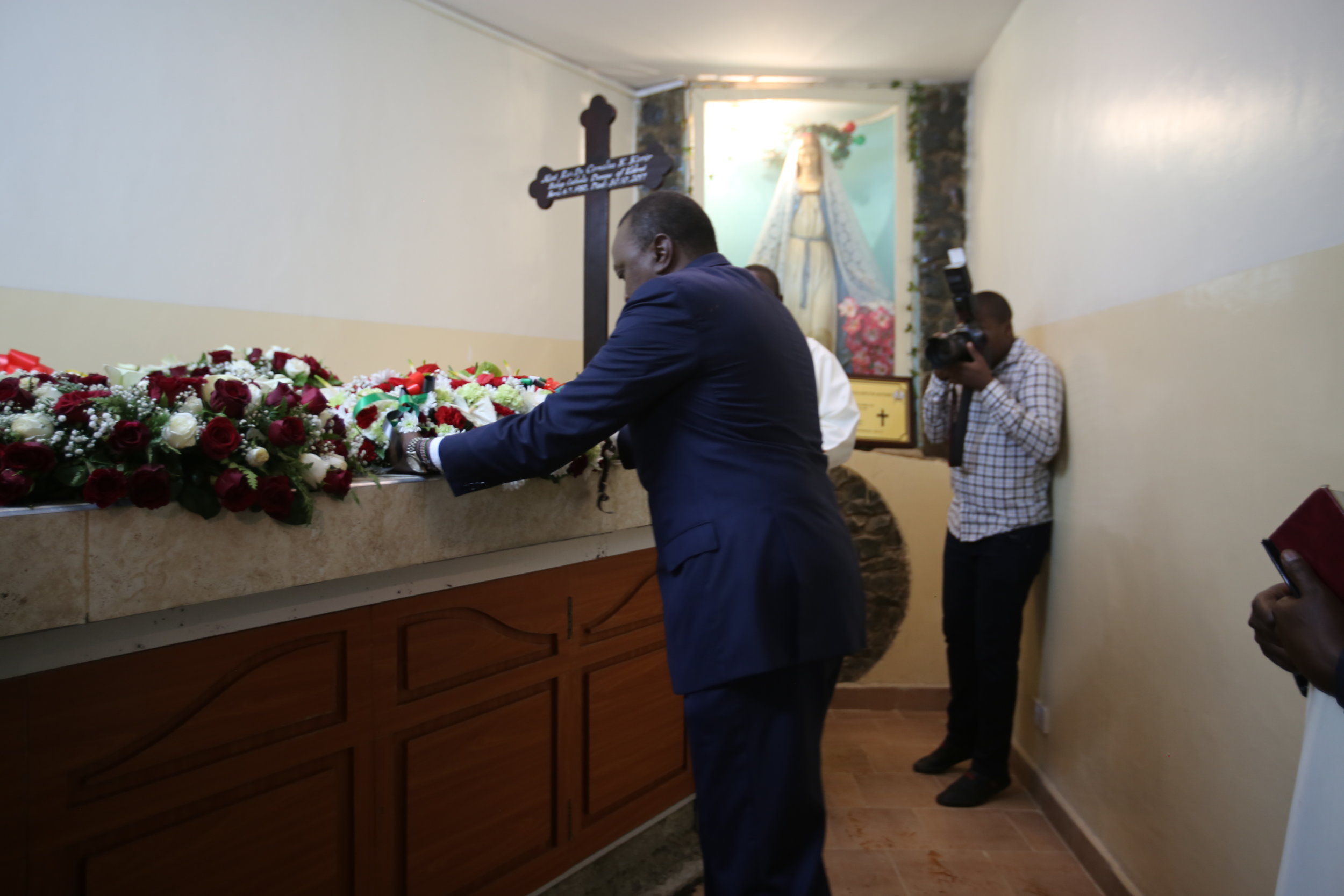
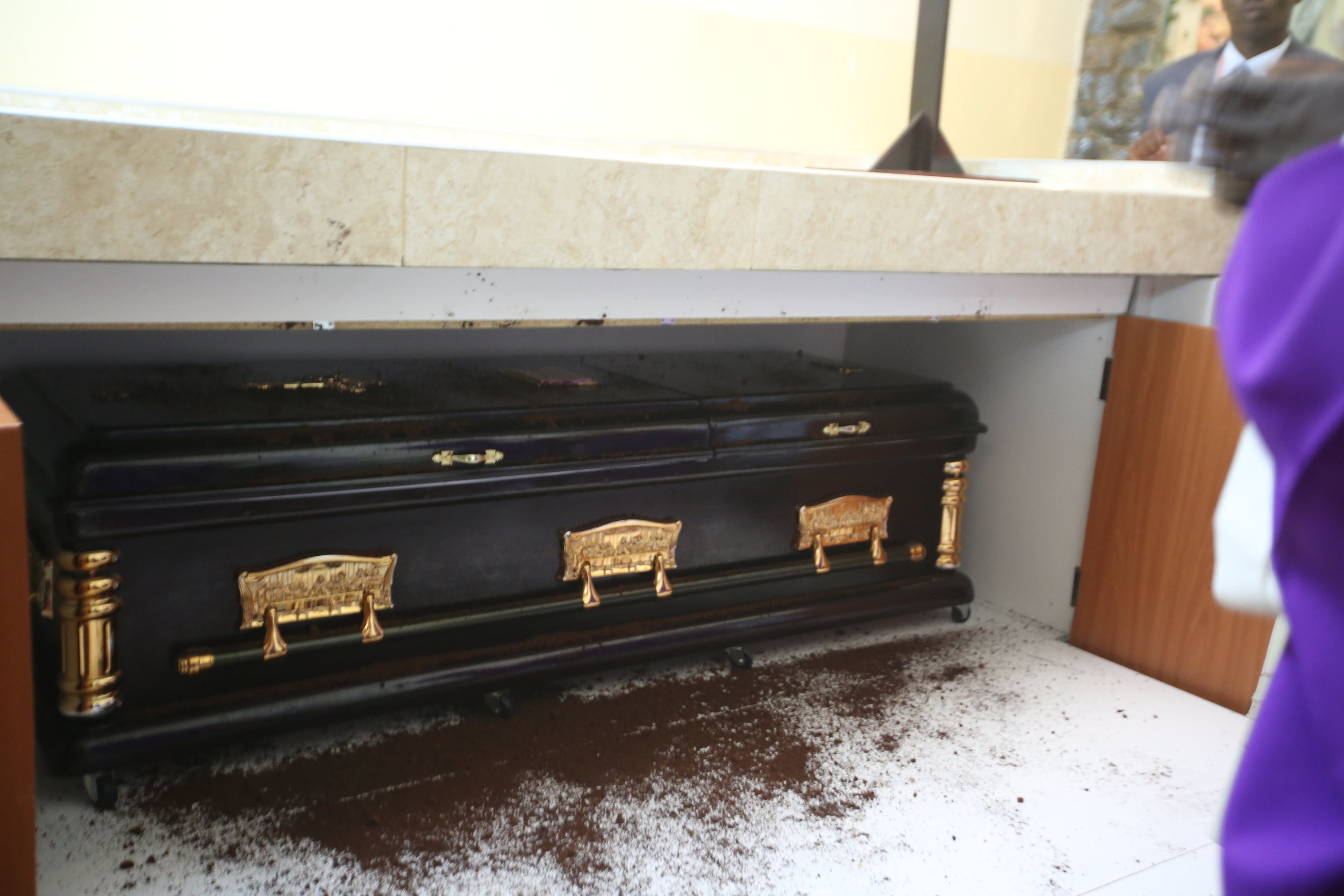
People across Africa continue to mourn the passing of peace icon, Bishop Cornelius Kipng’eno Arap Korir of the Catholic diocese of Eldoret in Kenya. Bishop Korir died six weeks ago due to illness. In the days and weeks since his passing, people continue to search for ways to commemorate his death and honor his memory.
The Bishop was best known for his tireless effort to bring peace to the region and resolve conflict in East Africa. His peace initiatives came into the limelight during the infamous post-election violence in 2007 that left thousands of Kenyans displaced and claimed the lives of countless others. In 1992, his peace efforts took on a life of their own during the ethnic tribal clashes in Molo, Kenya, where he served as a priest. The clashes were precipitated by a build-up to the multi-party elections in Kenya after years of a single party rule. Communities that once lived together in harmony were now at odds because of the alignment that the new parties had with different tribal kingpins.
““For God is a God not of disorder but of peace.””
The Children of the Pontifical Missionary Childhood (PMC)
In 1994, the violence escalated and Bishop Korir risked his own life as he continued to be a champion for peace in the midst of politically motivated violence that led to the killing, injuring and displacement of thousands of innocent Kenyans. These ethnic clashes continued in each year and election that followed.
“I told them they will have to kill me first before killing the Kikuyus. These are my people too just like them. They are my flock and I have to protect all in equal measure. ”
The violence escalated in 2002 when Kenyans witnessed ethnic violence throughout their country. The worst hit area was in the Rift Valley Region – home to the Kikuyu and Kalenjin-speaking communities. These two tribes had been fighting on alleged supremacy cognizance and land-related issues since the death of the first president. Bishop Korir worked tirelessly to bring the warring communities together and to stop the fighting and senseless destruction taking place.
The Bishop's peace initiatives came into the limelight during the infamous post-election violence in 2007 that left thousands of Kenyans displaced and claimed the lives of countless others. During the infamous post-election violence, Bishop Korir was based in Eldoret Archdiocese, Uasin Gishu, which was the hot bed of the clashes between the two communities. The Bishop hosted over 10,000 Kikuyus who sought refuge in the church compound at the Sacred Heart Cathedral. Being a Kalenjin himself, he found himself at war with his community who could not understand how he could provide shelter and protection to their enemies.
“Being a Kalenjin himself, the Bishop found himself at war with his community who could not understand how he could provide shelter and protection to their enemies. ”
In an interview with the national broadcast network during the celebration of Heroes Day in Kenya, the soft-spoken Bishop shared of his discourse with people who were once his allies:
“The Kalenjins were not happy with me. They sent me threatening text. They said that if I do not release the Kikuyus to them, they would storm into the church and kill them. I told them they will have to kill me first before killing the Kikuyus. These are my people too just like them. They are my flock and I have to protect all in equal measure. I hosted the Kikuyu’s, fed them and prayed with them.”
The Bishop was later involved in mediating peace between the two communities by facilitating agricultural production and the building of roads and bridges to create peace projects to help the communities to settle into normal life.
Bishop Korir and Bishop Maurice Crawley with experts and residents of Kainuk at the agriculture peace connector project in Kainuk
Among the pastoralist communities of Pokot, Turkana and Marakwet in the Rift Valley, the issues of livestock and pasture were the main causes of conflict. It once got so severe that the area became inhabitable. The government resorted to forceful disarmament. It failed.
But Bishop Korir had success in development projects. At a place called Lelan West Pokot in The Rift Valley, he managed to introduce a milk cooling plant. A foundation run by Melinda and Bill Gates helped to fund the plant since the project was geared towards bringing the Marakwets and Pokots together in dialogue.
During his experience in conflict resolution and peace-building, Bishop Korir managed to break down the strong walls of opposition and gain acceptance from the community elders to start peace initiatives. He became the person they would call on when they needed a mediator or wanted to talk about peace matters. They were even willing to hand over their firearms to Bishop Korir after they started engaging in productive enterprises like farming and other businesses. With the introduction of high milk and meat producers in these communities, peace began to be established. They were successful. That region now leads the African region in milk production.
MEMORIALIZING AN ICON
Bishop Korir died on the morning of October 30. In the weeks after his passing, it is increasingly evident just how much he was adored. In fact, many people traveled more than 200 miles from Kainuik Turkana located in the Rift Valley Region to Eldoret to mourn with the people there.
The service was held at the Sacred Heart Cathedral in Eldoret,Kenya
Lepeker Lebuun, a Turkana elder who worked closely with Bishop Korir in peace building initiatives, shared a message of peace in memory of Bishop:
“The late Bishop Korir was an elder of peace. He loved peace. He loved us. I have traveled all the way to come and mourn him. We had made major progress. Peace had slowly crept back into our area. But now he is gone. My heart is broken, I am old but I have a feeling things would be better if he was around. What am asking my people to do is to let peace prevail. Bishop will rest peacefully knowing that there is no more cattle rustling, no more highway robbery, and no more hatred between us”.
The Bishop also managed to bring the local leaders together including governors of the various counties in the larger Rift Valley Region where these warring communities come from to sign a peace pact.
Josephat Nanok, governor for West Pokot County and chair of the Council of Governors eulogized The Bishop with these words:
“We have lost an astute peace builder. He brought together warring communities in the rift valley region. He was able to reach to us in West Pokot, Baringo and Turkana. When policemen were killed in Kapedo Baringo, the bishop was with us preaching peace and asking our people to stop killing officers. He even made Karamojong and Turkanas put down their weapons for the sake of peace. Due to his initiatives in Lotong’ot, where peace was brokered between the neighboring Pokots and native Turkana, we propose to put as a commemoration every year for his memory”.
Rt Reverend Maurice Crawley, Bishop of the Catholic diocese of Kitale, worked with Bishop Korir in many of these peace-keeping initiatives. He recalls with happiness his experience of working with the Bishop:
“Bishop was the main worker. Apart from cattle keeping and education the other thing that would have brought these communities together to dialogue is farming. Experts were brought along to help them kick start it. But the government needs to bring along water. It should also prioritize education because if they are fed and have education, women will also know their worth. We also were able to provide the reformed Pokot gang leader a motorcycle to monitor the raids”.
In addition to the countless hours he spent pioneering for peace, The Bishop also managed to write two books: Amani Mashinani ("Peace in the Grassroots") and Maridhiano Mashinani (Reconciliation at the grassroots).
THE INTERFAITH CONNECTION
Interfaith religious leaders attended The Bishop's mass funeral
It was the Bishop’s cheerful and friendly nature that earned him friends beyond the Catholic Church. Interfaith religious leaders mourned his death, as well. They described him as a daring person who did not hesitate to assist when needed. An Imam of the Muslim faith said that the bishop had approached him and requested to accompany him to have a dialogue with the militant group, Al Shabaab, based in the neighboring Country of Somalia. In his euology he said:
“I never understood this man of God. Yes I say God because we all serve the same God. One time he asked me why we had problems but we never told him about it. And I said we know you are busy and thought we would handle it. Then he said I want you to take me to al shabaab so that I can talk to them. I asked him twice for confirmation if he knew what he was asking for and he responded in the affirmative. Who would want to even come face to face with the militants?”
His elder brother, councilor Michael Kiplang’at Korir, eulogized The Bishop as an ardent peace maker who beat all odds to ensure he served the people of God:
“Bishop loved God. Since childhood he was the only one who would go miles away for the mass services as we stayed home. Our parents were against him joining priesthood but he stood his ground. He loved the church so much that even when we had functions at home and he had a mission, he would not turn up but tell us that he was attending to church matters. He loved to solve problems. He was a peace maker. He was never chased away from school at any time for wrong doing”
Bishop Korir and leaders from the warring communities signing a peace pact
Bishop Korir spoke his mind. He was never afraid to speak out on the failures of the government. Where other church leaders feared victimization or remained silent due to political pressure, the Bishop would speak out and rebuke wrong actions.
As we reflect on his death it is more clear than ever that Bishop Korir was our hero - an icon taken from us way too soon. We do not question God's decision to take him home but we know for certain that we will miss him even more as time passes.
Rest in peace, man of God. May you find rest from your labor, our champion of peace.


